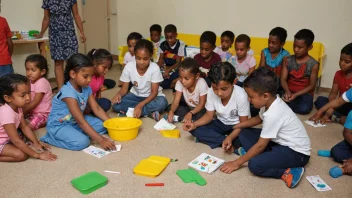Introduction
Mentorship programs have the potential to transform the lives of young individuals by providing them with guidance, support, and opportunities for personal growth. These initiatives can bridge the gap between youth and experienced mentors, fostering a positive and nurturing environment. Here, we present the top seven strategies for creating effective mentorship programs that can empower youth within the community.
1. Define Clear Objectives
Before launching a mentorship program, it's crucial to establish clear objectives. What specific goals do you want to achieve? Whether it’s enhancing academic performance, building life skills, or promoting career readiness, having defined objectives will help guide the program's direction.
2. Recruit Diverse Mentors
Diversity in mentorship is vital. Recruit mentors from various backgrounds, professions, and experiences to provide a broad spectrum of perspectives and advice. This diversity can enrich the program and make it more relatable for the youth participants.
3. Foster Strong Relationships
Building strong, trust-based relationships between mentors and mentees is essential. Encourage regular check-ins and open communication. This rapport can create a safe space for youth to express their challenges and aspirations.
4. Provide Training and Resources
Equip mentors with the necessary training and resources to effectively guide their mentees. Workshops on communication skills, conflict resolution, and cultural competency can enhance mentors' effectiveness and improve the overall experience for both parties.
5. Set Up Regular Meetings
Consistency is key in mentorship. Establish a schedule for regular meetings, whether weekly or monthly, to ensure that mentors and mentees stay engaged. These meetings can be informal gatherings or structured sessions focusing on specific topics.
6. Encourage Goal Setting
Help mentees set personal and academic goals. Encourage them to articulate their aspirations and create actionable plans to achieve them. This process not only empowers youth but also helps mentors track progress and provide relevant support.
7. Evaluate and Adapt the Program
Regularly evaluate the program's effectiveness through feedback from both mentors and mentees. Use surveys, interviews, or focus groups to gather insights. Be prepared to adapt the program based on this feedback to better meet the needs of participants.
Conclusion
Creating mentorship programs that support youth in the community requires thoughtful planning and execution. By defining clear objectives, recruiting diverse mentors, fostering strong relationships, providing training, setting regular meetings, encouraging goal setting, and evaluating the program, you can make a significant impact in the lives of young individuals. Together, we can empower the next generation and inspire them to achieve their fullest potential.






